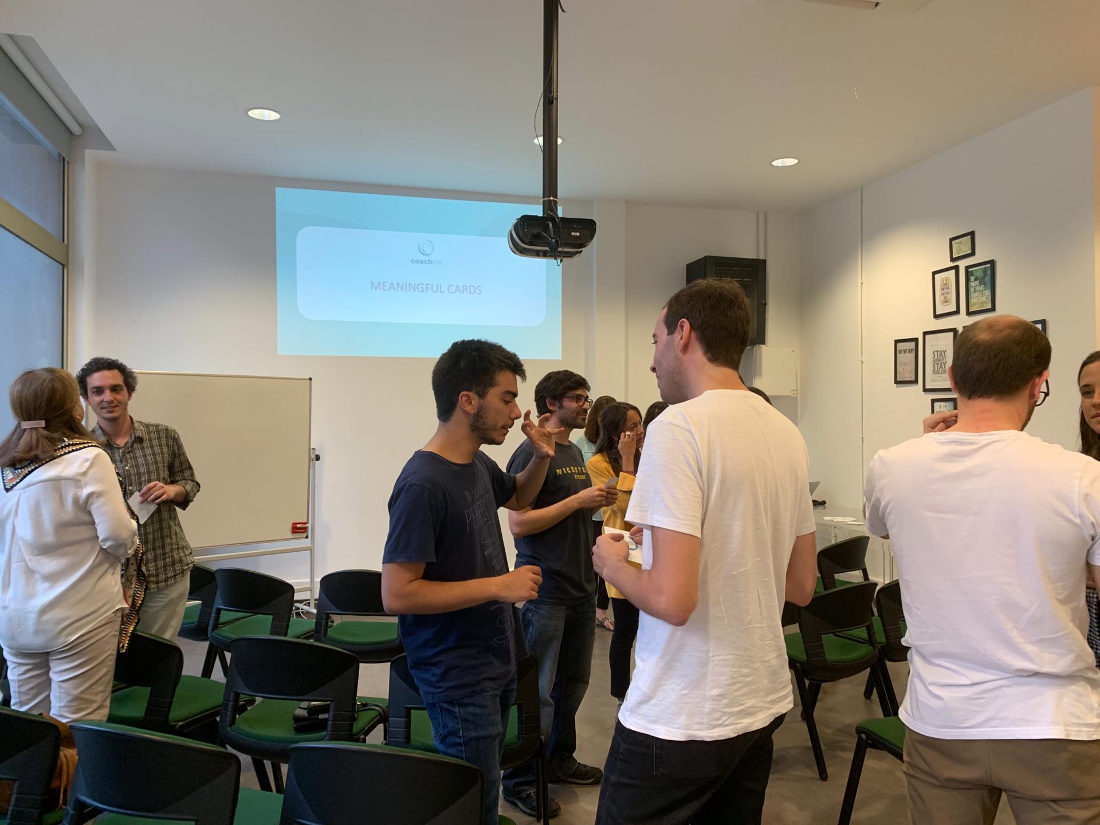There are moments when the road of life forks into countless futures and we stand there, at the crossroads, wondering which path to take. At such decisive moments, some of us decide to stumble around in the dark while others reach out for help.
Coachmi, a Portuguese startup based in Lisbon, wants to make sure that help is just around the corner and there is enough light for young professionals to see the steps ahead.
With a logo that mirrors its co-founders’ passion to create a place where the first drop of a ripple effect of self-awareness takes shape, this ambitious startup is all about inspiring “change” through finding “meaning”.
“Once you find the meaning behind a change, it’s much more likely that you’ll end up making that change,” Madalena Fragoso, the co-founder of Coachmi, told Via News Agency in an exclusive interview.
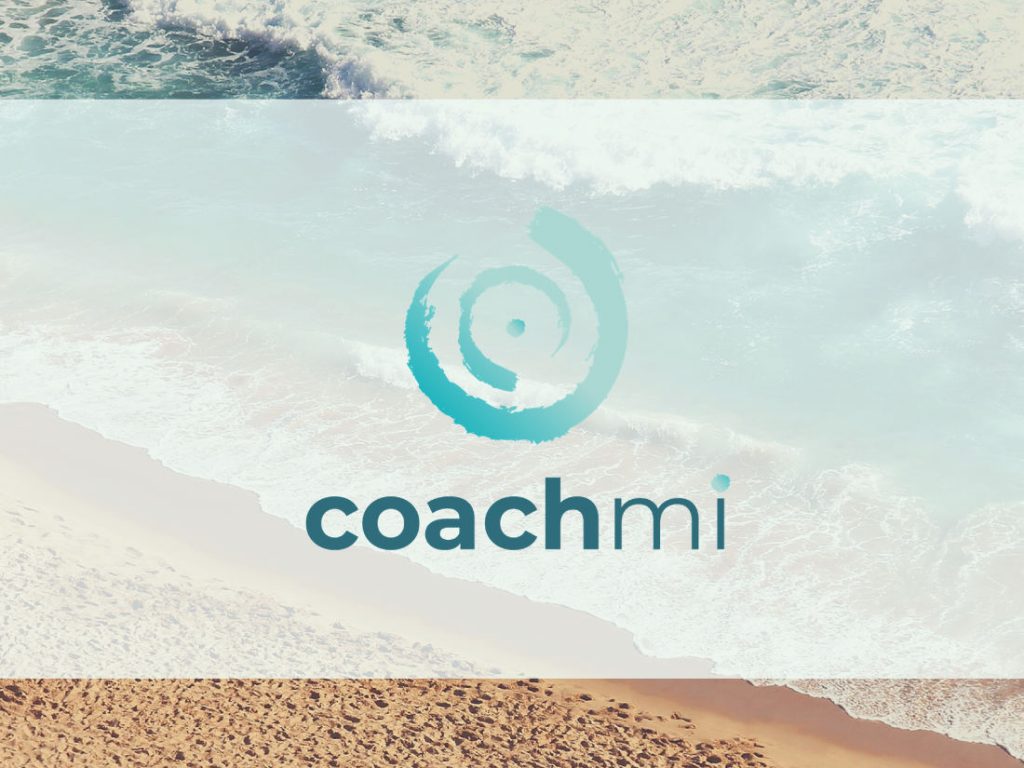
Madalena, a soft skills trainer and a professional coach certified by the International Coaching Federation (ICF)—the world’s largest organization of professionally trained coaches—explained that their motto is “Find a meaning, make a change” and they aspire to “empower” young professionals through a coaching process.
According to her, Coachmi provides ICF-certified coaching sessions, on-site or remote, for individuals and groups who are facing challenges ranging from choosing a career and making a career change to leading a team.
“We came up with this idea because we are also young professionals and we ourselves are familiar with and deal with challenges that young people have to overcome nowadays,” Madalena said, adding that they aim to fill the usual generation gap between coaches and coachees.
“Once you find the meaning behind a change, it’s much more likely that you’ll end up making that change.”
Madalena Fragoso, co-founder of Coachmi
This is a vision shared by Inês Xavier da Cunha, the other co-founder of Coachmi, who is a soft skills trainer and professional ICF coach with years of experience working with young people in the area of behavioral training through non-formal education methods.
She conceived the Coachmi project and realized later that Madalena is her perfect match for this business. They tested their idea before launching their startup and it went well. Coachmi is currently based in Labs Lisboa, an opportunity which both co-founders are grateful for.
Inês has already made some momentous decisions along her academic and career paths and felt “completely lost” at a certain point in her life.
“This is why I want to add value and support people who are going through the same situation so that they can handle it more easily. I want to give them the necessary tools so that they can get to know themselves better and overcome these challenges.”
She says some people are living an “unfulfilled” life and desire a change but are afraid of taking the leap into something new.
“People should know that if they’ve made a decision that they don’t feel comfortable with and decide to take a new path, that’s fine. It’s not the end of your life. We become more self-aware and with self-awareness, we can always make better choices for ourselves. We want to create the space for this reflection and self-knowledge.”
“Our generation wants everything right away. But it’s not possible. It takes time.”
Inês Xavier da Cunha, co-founder of Coachmi
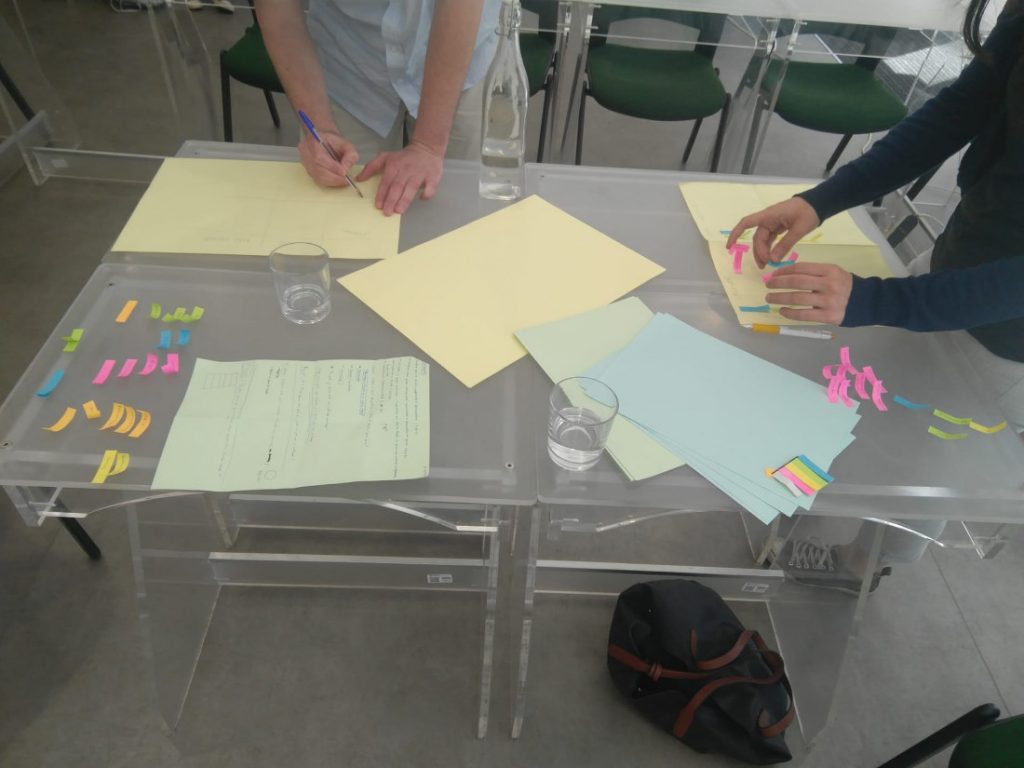
Coaching Industry
When asked about the gap in the market that persuaded them to launch Coachmi, Madalena said, “When coaching started as an industry, it was just for CEOs and big companies.”
“After we completed our coaching training, we saw the impact of coaching and wanted to bring coaching to our generation because it brings out the potential of each person.”
The gap felt by Inês and Madalena is totally real as the 2016 ICF Global Coaching Study found that professional coaching for Millennials is growing.
According to the International Coaching Federation, professional coaching for Millennials is growing
“In total, 23% of coach practitioners surveyed reported their clients are under the age of 35. The business of coaching is also growing among the Millennial age demographic. Six percent of coach practitioners are under the age of 35,” the report said.
According to the study, younger coaches are driving a new frontier for the coaching profession across the emerging markets.
“Additionally, nearly two-thirds of younger coach practitioners (61%) view coaching as a profession as opposed to a skill set, and nearly half (48%) strongly agree people or organizations that use coaching should expect their coach to be credentialed.”

It is good news for companies like Coachmi that the global coaching market continues to grow at a rapid pace.
The 2016 ICF study put the estimated number of professional coach practitioners worldwide at 53,300, with Western Europe accounting for the largest share (35%), followed closely by North America, with an estimated 33% share.
“The estimated global total revenue from coaching in 2015 was US$2.356 billion, representing a 19% increase over the 2011 estimate,” reported ICF, which defines coaching as “partnering with clients in a thought-provoking and creative process that inspires them to maximize their personal and professional potential.”
Workshops, Meaningful Talks
Inês says their main target audience includes university students and entrepreneurs and they are holding workshops to promote awareness about their services and the importance of coaching.
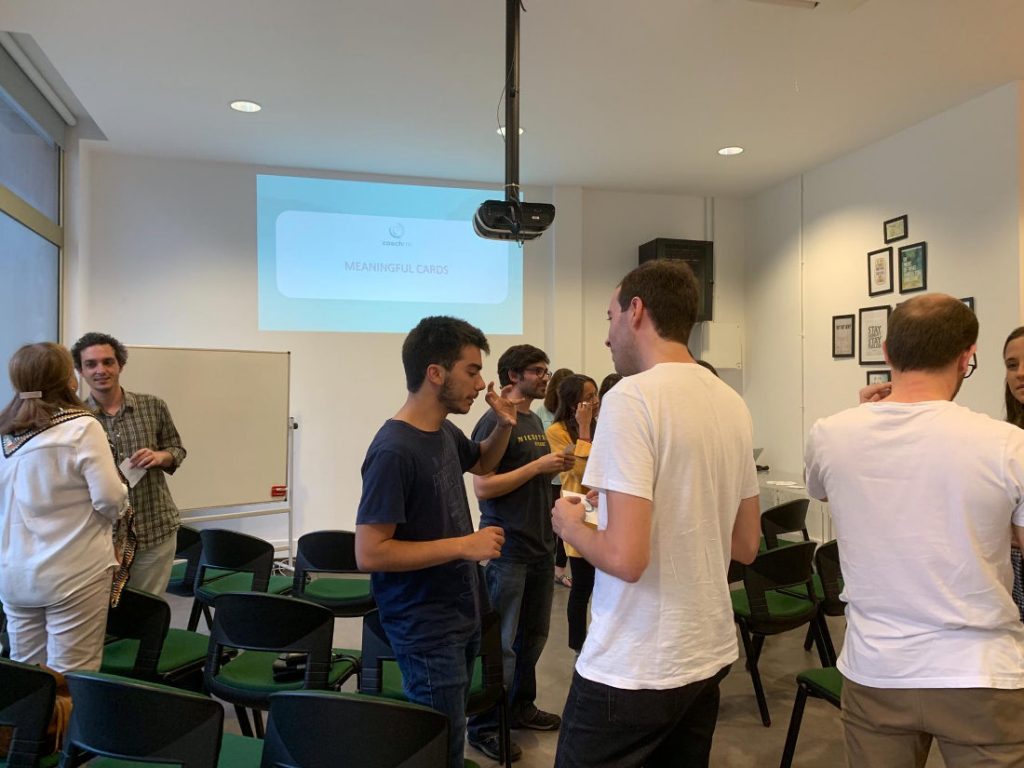
“We are in touch with career services offices of universities and offer coaching at workshops. We also go to co-working spaces. The focus there is on entrepreneurs, freelances, and people who come from abroad to Lisbon,” she explained, adding that Coachmi can help foreigners adjust more quickly to their new environment.
“The main focus is currently on Lisbon, but more international people are getting to know us. And if they go back to their countries, we are still available for online coaching sessions. They will also be spreading the word about us.”
Inês said they are taking steps toward expanding their business and “Meaningful Talks” is another project that their startup is working on.
“The way we are going to do it is different from the usual talks where you have a speaker. We want to make it more interactive. We plan to invite three people who have already gone through a specific change. Those three hosts will first introduce themselves and will then join three different groups of participants for more intimate talks. The hosts will then rotate so that participants can seek advice from all of them.”
Each session has a different topic and the number of participants are limited for maximum results. According to Inês, the sessions will start in January and will be held every month.
The first three topics are about transitioning from employee to employer, changing countries, and shifting from an office-based job to working remotely.
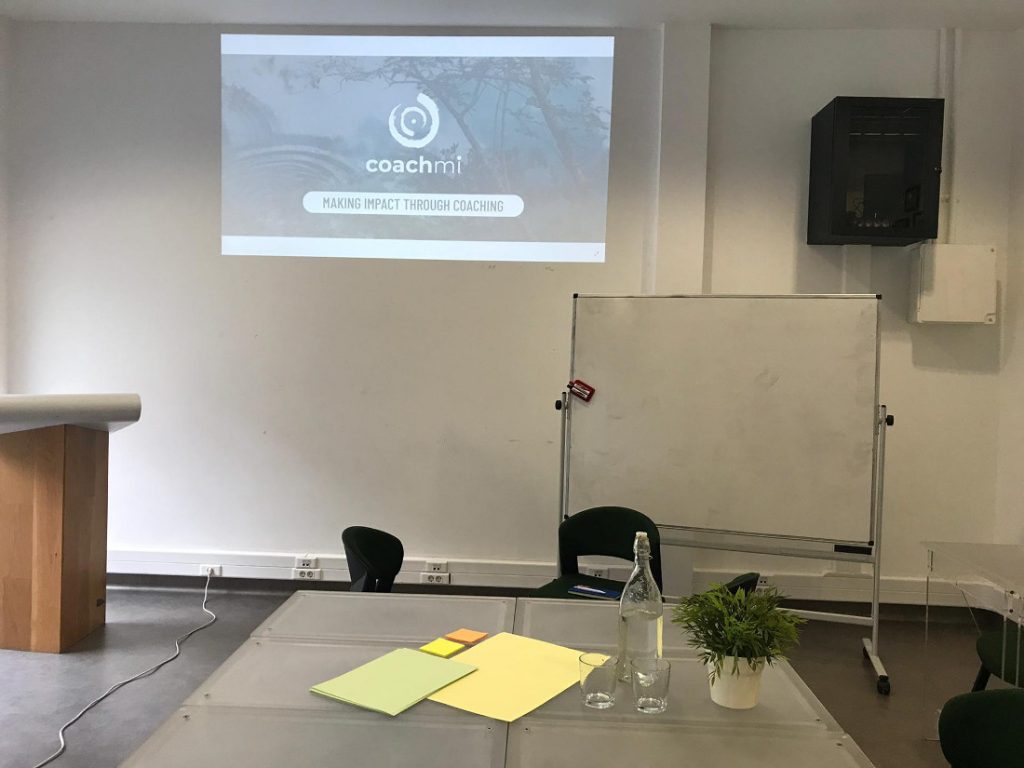
Social Stigma
On whether there is still a social stigma attached to seeking help, Madalena said things are improving and more people are becoming aware of the significance of “mental health”.
“We want to be a part of the change in how people think about getting help because help doesn’t need to be perceived as a negative thing. We want to be a part of that mind shift.”
She believes that people often “feel discomfort between comfort and courage” and in such moments they have to “just stop and think and ask questions”.
A few simple questions can help you better understand “what is happening to you and what is happening around you,” Madalena added.
“In today’s world, we have a lot of options, which makes it really difficult to know exactly what we want to do in our professional lives. We have seen our parents and grandparents holding one job for their entire life. But things have changed, and it’s okay if you don’t want to do one thing for the rest of your life.”
Inês agrees and says many people feel pressured by society to find a stable job “but it’s not how the world works today”.
Madalena maintains that people do not need to be facing a “huge” problem or a “trauma” to seek the help of a coach.
People can reach out for advice on an ordinary topic and explore all the possibilities, rather than getting stuck in their current situation, she said, adding that what is learned during a coaching process can be applied to both professional and personal aspects of one’s life.
Positive Feedback
On the feedback they have received from their coachees so far, Inês said many of them have found it amazing that some small changes can change the course of their future.
The group sessions have also given them the space to talk to other people who are going through similar struggles, which helps them understand that it is “normal” to face such challenges, she added. “They not only find solutions together but also feel inspired by each other.”
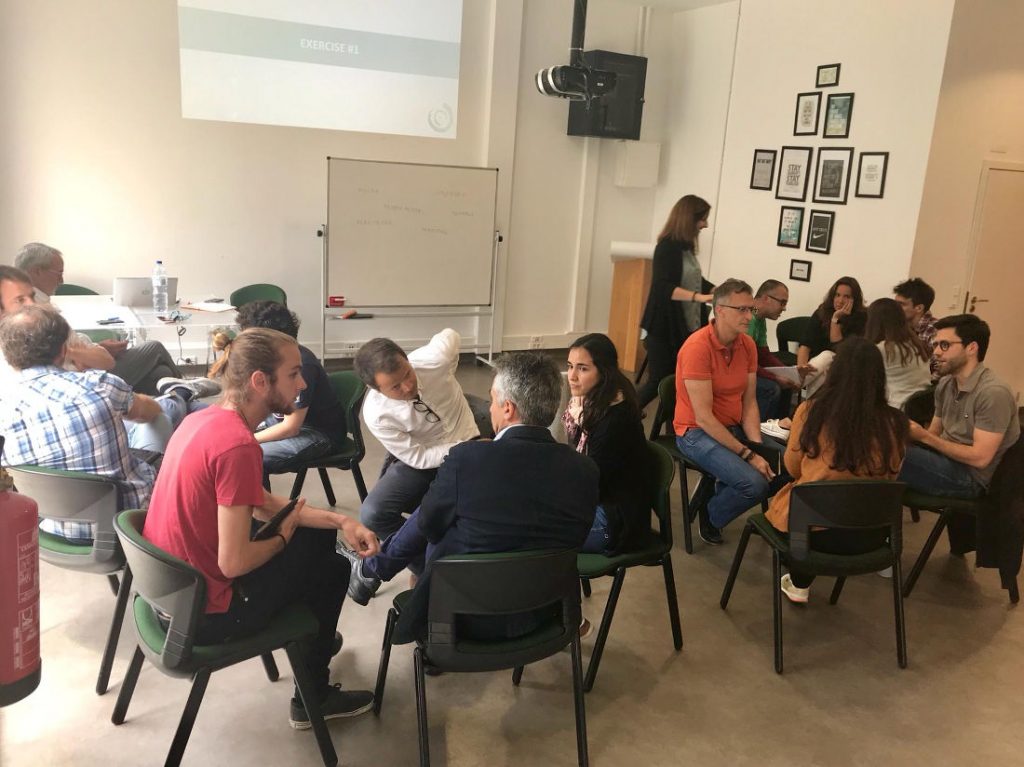
Crucial Soft Skills, Common Challenges
On the most important soft skills that young professionals need today to succeed, Inês said “flexibility” is key because the market is changing fast and young people should be able to quickly adapt to new contexts.
She says “critical thinking” is also very important, particularly in the era of fake news, because “it seems we are trained and educated only to follow others and not exactly stop and think.”
Madalena says the younger generation should learn to be “mindful” of their actions and reactions to people and situations as well as their impact on others and the world.
Asked about the most common challenges among young professionals, Inês said they are more related to choosing a career and changing companies.
“What’s missing is the vision and an understanding of what kind of impact they want to have on the world, what their values are, and who they want to be. We also should understand that it’s a learning process. Our generation wants everything right away. But it’s not possible. It takes time.”

